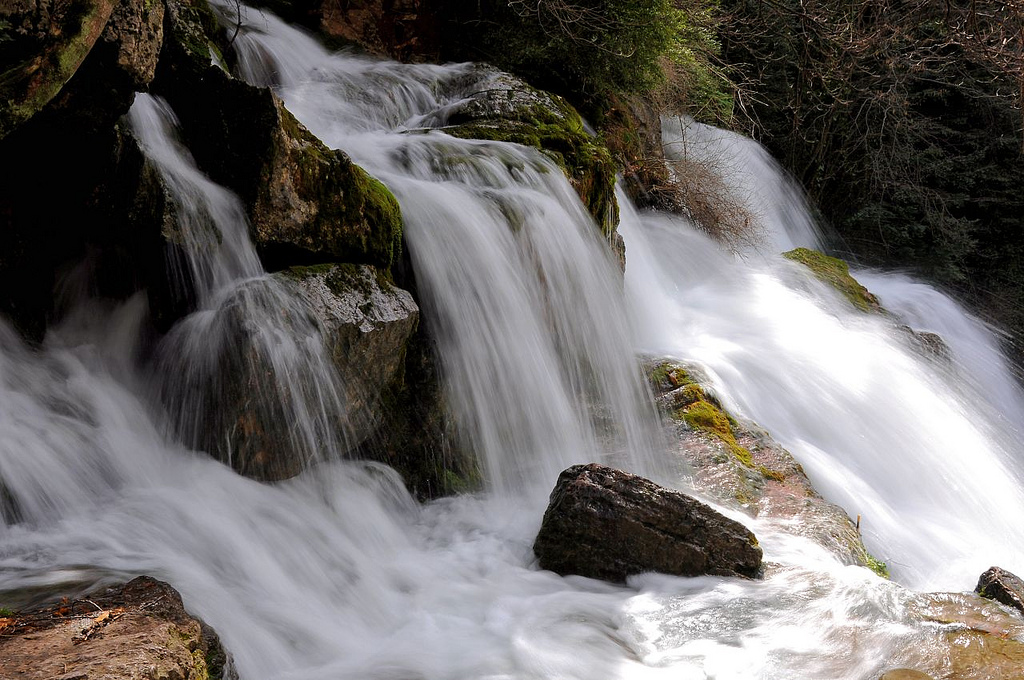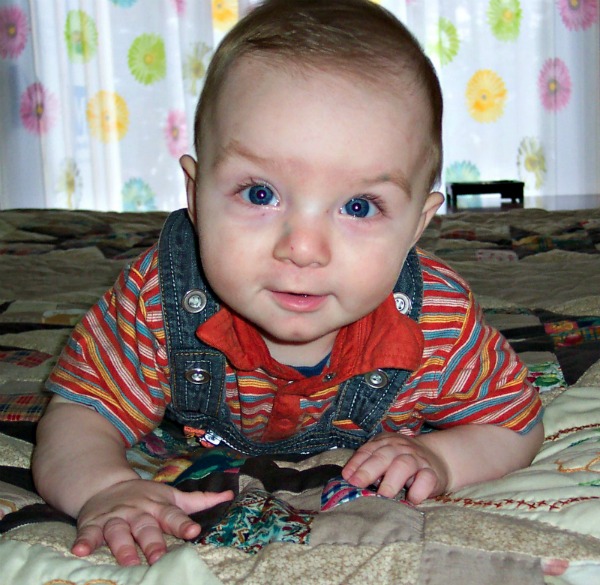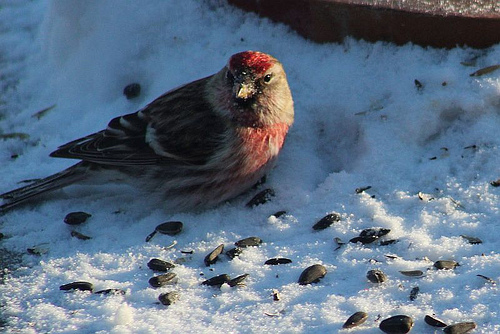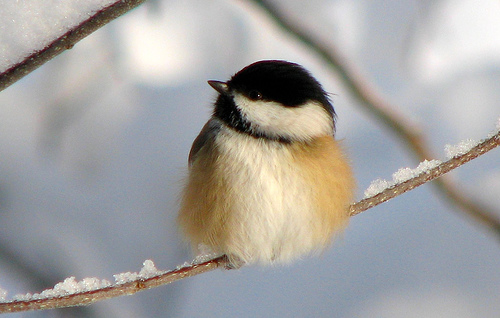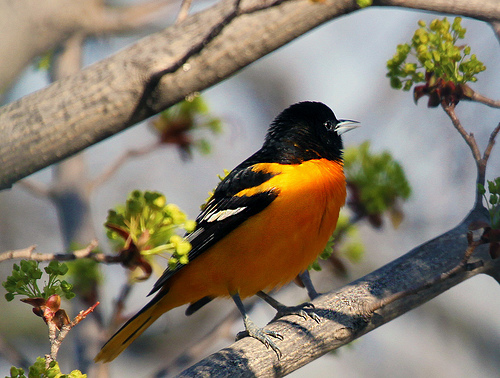This month’s poem is the most technically challenging of any of Mom’s poems that I’ve shared so far. Yet this poem also comes with a personal story.
(See here for an introduction to this monthly series from Mom.)
Back in my days at Nipissing University, I took a Victorian Literature class under Lorraine Janzen Kooistra. Since Mom enjoys the poetry of the 19th century, I asked my professor if Mom could join me in class. Professor Janzen agreed. So Mom joined me on a day when we were studying the poems of Gerard Manley Hopkins (1844–89), and afterward she wrote a poem in memory of the occasion.
I’ll let Mom continue with her own introduction to this poem:
“Teach me some melodious sonnet, Sung by flaming tongues above.” Every time I sing that line from Robert Robinson’s hymn, my heart lifts with longing. Samuel Medley, another eighteenth century hymn writer, yearned to “speak the matchless worth” of his Saviour, to “sound the glories forth.” Like him I ache to “soar and touch the heavenly strings, and vie with Gabriel while he sings in tones almost divine.” Neither of those hymns are sonnets and we don’t usually sing sonnets in our worship, but sometimes my attempt to soar in private worship is on the wings of a sonnet, one of the most perfect of poetic forms.
The Canadian poet, Margaret Avison, who became a believer during her writing career, compared a sonnet to a stiff butterfly specimen in her sonnet Butterfly Bones; or Sonnet Against Sonnets, suggesting that the form, like cyanide, “seals life” with its cryptic laws. Can a sonnet take wings and soar? Can it live and breathe inside the confines of its form?
This poem is a sonnet about reading sonnets, but not just any sonnets. The sonnets our professor was reading were composed by Gerard Manley Hopkins, a Catholic priest writing in the late nineteenth century, a poet of deep faith who knew and mastered the rules of sonnet writing but transcended and transformed them, bouncing the rhythm and building words, and so creating highly original, masterful sonnets that were uniquely his own.
Perhaps this was because his inspiration came from observing the natural world which was created by a God Who Himself had devised the rules by which life exists, and then delighted in displaying infinite variety of form and creature within those confines. The God of gravity and precisely regulated atmospheric gases also playfully created koalas and kangaroos, amphibians and ocean mammals, butterflies and birds, the platypus and penguin, each able to flourish within the precise requirements and provisions of planet earth, and together displaying the incomprehensible mental and artistic powers of our Creator God.
Hopkin’s world was “charged with the grandeur of God,” full of the glory of “dappled things,” where God “fathers-forth” and “Christ plays in ten thousand places,” and “the Holy Ghost over the bent world broods with warm breast and with ah! bright wings.”
Ah wings! Can a sonnet soar? This poor specimen may be a bit stiff in places but if it causes you to read Hopkins, worship the Creator, or echo His glory more uniquely, that may be as wondrous as soaring.
Your poem is, as I thought it might be, a highly crafted and intellectual lyric. But the laurel is reserved for your mother, who has a real poetic gift (& also, of course, several more decades of writing experience than you do!). Please tell her for me how very much I enjoyed her Hopkins imitation. The compounding and chiming are particularly deft, & the final sestet is positively magisterial.
So, for your enjoyment and worship, here is Mom’s poem:
PROFESSOR JANZEN READS HOPKINS’ SONNETS
When Janzen scans his lines, each stanza enchants–
Soft, swell; breath, bell; speak, spell–each noted nuance
Of stone rung, rhythm sprung… silence… All enhance
His intricate syllabic aural contredanse.
The optic nerves catch fire: a micro-expanse
Of inner landscapes; unique icons and fonts
Inscribe inscapes, transcribe atomic dance;
Words deftly flash designs that nature flaunts.
And more, each self that solos prominently
Echoes its source–By Him we cohere, consist–
As teacher, class and I, the dilettante,
Meet the word-waltzing, the word-wielding, the word-waking Word–all three:
The poem and poet, and Maker by whom they exist,
And we, wonderstruck with creation’s concertante.
– By Elaine Gingrich, 2002
To help you better appreciate this poem, Mom and I thought it would be good to post one of Hopkin’s own sonnets as well. Here is one of the poems that Janzen read on that day–one of the poems that inspired Mom’s poem:
34. ‘As kingfishers catch fire, dragonflies dráw fláme’
As kingfishers catch fire, dragonflies dráw fláme;
As tumbled over rim in roundy wells
Stones ring; like each tucked string tells, each hung bell’s
Bow swung finds tongue to fling out broad its name;
Each mortal thing does one thing and the same:
Deals out that being indoors each one dwells;
Selves—goes itself; myself it speaks and spells,
Crying Whát I do is me: for that I came.
Í say móre: the just man justices;
Kéeps gráce: thát keeps all his goings graces;
Acts in God’s eye what in God’s eye he is—
Chríst—for Christ plays in ten thousand places,
Lovely in limbs, and lovely in eyes not his
To the Father through the features of men’s faces.
And here are links to a few more of Hopkin’s better-known sonnets, ones that Mom quoted in her introductory essay above:
7. ‘God’s Grandeur’
13. ‘Pied Beauty’
If you enjoyed this poem, leave a comment here for Mom, or send her an email at  . Thanks!
. Thanks!
![]() . Thanks!
. Thanks!
